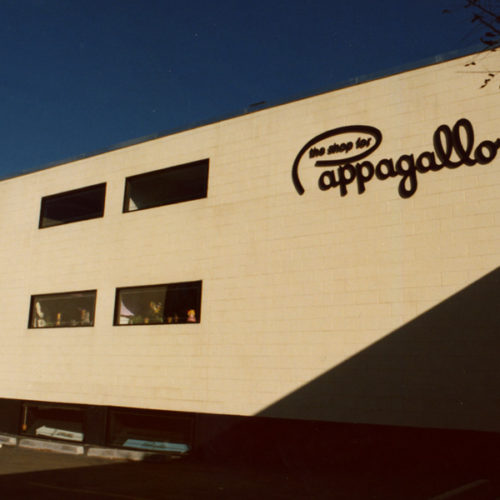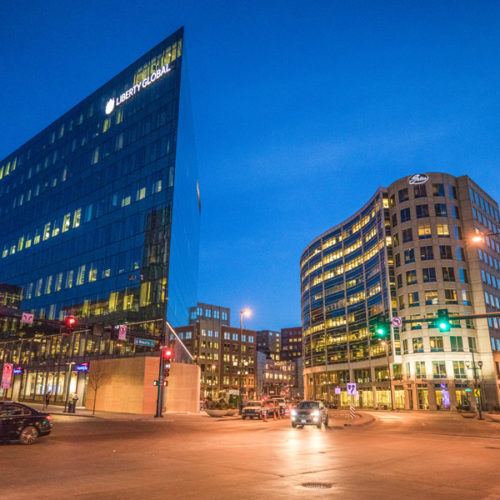This website uses cookies so that we can provide you with the best user experience possible. Cookie information is stored in your browser and performs functions such as recognising you when you return to our website and helping our team to understand which sections of the website you find most interesting and useful.
Born from two aspirations, ownership and fiscal responsibility, Saunders set out with a simple plan — to build good projects for satisfied clients.
It was only logical that the boy who spent his summers in the pine forests of Maine, building makeshift benches from boards and nails, would take his knack for building to the next level. Some people would later reflect that he was born to build.
After receiving a degree in Building Industry and Real Estate from the University of Denver, Dick spent the next 10 years fine tuning his construction skills. From digging ditches and pouring concrete to managing the books of a small general contractor, he rarely passed on an opportunity to learn.
However, he also learned that sometimes you need to create your own opportunities. So, at the age of 30, Dick started planning and took a $40,000 loan, along with his entrepreneurial spirit, and started his greatest project yet.
Saunders Construction landed its first project in February of 1972. Its introduction into the commercial construction industry was Pappagallo’s, a women’s boutique in the heart of the Cherry Creek neighborhood. Shortly after, Saunders hired its first superintendent, Jerome Gustafson.
Since then, Saunders has helped build communities throughout the Rocky Mountain region and surrounding states. It’s continued to grow and weather economic ups and downs, all with the steady leadership of only three chief executive officers. The true Saunders legacy can be found in this spirit of growth and commitment to core values.
Today, Saunders is one of the Rocky Mountain region’s most respected construction organizations. The employee-owned company operates with a dynamic employee base dedicated to exceeding Dick’s vision of building good projects for satisfied clients.
Saunders Through the Years
A Decade of Identity
In the early years of Saunders, there was minimal office staff, but no shortage of work. Workweeks consisted of 80+ hours and good old-fashioned hard work. Business was made through phone calls, handshakes and trust. What followed were relationships built on the budding reputation of Saunders’ unfailing commitment to clients. Saunders’ first exploration of a formal construction management contract method was implemented on the Dry Creek Elementary School project in the Cherry Creek School District. This concept was new to the construction market, but would quickly take hold as a best practice.
Plateau Project:
Kings Soopers – Leetsdale (1975). Saunders’ first $1 million project. Saunders would go on to complete over 130 projects for King Soopers.

A Decade of Evolution
The 1980's saw Saunders focusing on and growing its internal organizational structure. Business development, under the guidance of Tom Blackstone, and preconstruction services, led by Jack Sheppard, were developed and formalized. By 1983, Saunders had built and moved into its office on South Jordan Road in Centennial, Colo. During this decade, Saunders’ ownership was split between four majority partners; Dick Saunders, President, CEO and Founder, Dick Fullerton, Executive Vice President, Jerome Gustafson, General Superintendent, Tom Blackstone, Vice President of Business Development. Jack Sheppard, Director of Preconstruction Services, and Darrell Eastwood, Vice President, also held shares in the company.
Plateau Project:
Fiddler’s Green Amphitheater (1989) – first entertainment project.

A Decade of Strategy
More than 20 years after its inception, Saunders underwent a makeover, revealing a new logo in 1995. The new logo was evidence of the company’s dedicated investment in continually evolving to meet market demands. The 1990s also introduced Saunders to its future presidents and CEOs, albeit hired at the time as a project manager and lead estimator, respectively. Saunders joined the Citadel Group in 1999. Organized of seven industry partners throughout the United States, the Citadel Group is designed to serve individual clients with national needs.
Plateau Project:
Focus on the Family World Headquarters (1992) and Lucent Technologies Campus (1999)

A Decade of Adaptability
Following through on a well-developed succession plan, Dick Saunders slowly transitioned out of the daily business operations of the organization. John Beeble was appointed President and CEO in 2001. Saunders weathered many ups and downs, including one of our nation’s worst recessions. It was the company’s unfaltering commitment to core values and steady leadership that allowed Saunders to persevere. In 2005, Saunders completed its first project out of state – the Comcast Technical Operations remodel project in Albuquerque, New Mexico. Building Confidence in Kids (BCiK) was launched in 2009. As a continuation of the philanthropic work employees were already doing, this program was designed to create a formal outlet for volunteerism and community impact with local non-profits.
Plateau Project:
From 2000-2009, Saunders built more than 50 projects for Exempla (now SCL Health) and Kaiser Permenante. These projects were completed under a newly established Saunders Healthcare Services Division.

A Decade of Expansion
In 2011, Greg Schmidt succeeded John Beeble as President. Schmidt assumed the role of President and CEO in 2015, following Beeble’s retirement. Saunders acquired Heath Construction in 2014. This partnership pairs Heath’s history in and knowledge of Northern Colorado and Saunders’ depth of resources to meet the growing demands for comprehensive construction services in the region. Saunders was awarded its largest single contract, the 17th and Chestnut Residences project at $150 million, in 2015. By 2017, Saunders had completed 30 projects in nearly 10 states, outside of Colorado.
Plateau Project:
Clyfford Still Museum (2007) and Denver International Airport Hotel and Transit Center (2014).


